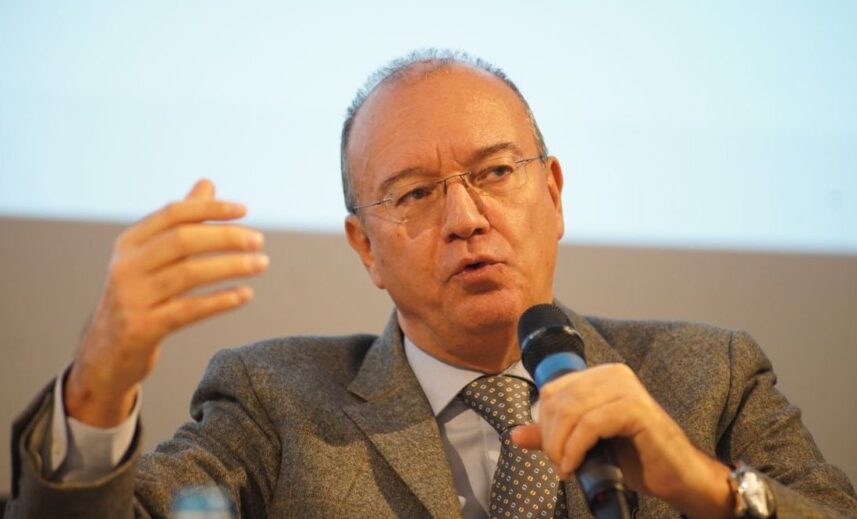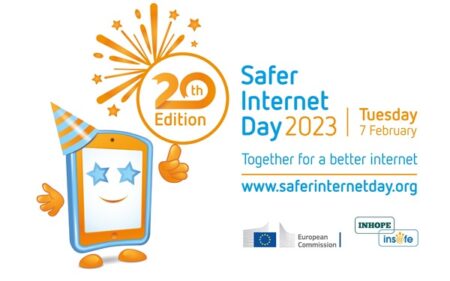In Rome the national event with the intervention of Minister Valditara. Live from 9.30 on the MIM YouTube channel. Research: 2 out of 3 kids have used Artificial Intelligence, even for studying
February 7, 2023 marks the 20th anniversary of Safer Internet Day, the World Day for Internet Safety promoted by the European Commission and celebrated simultaneously in over 100 countries. Even the Ministry of Education and Merit adheres to the initiative, as an "important opportunity to promote the reflections of girls and boys not only on the conscious use of the Web, but also on the active and responsible role of each in the creation of the Internet as positive and safe place”.

In particular, the Ministry has scheduled an event for schools for 7 February 2023 to be held in Rome, with the intervention of the Minister of Education and Merit Giuseppe Valditara, from 9.30 to 13.00. It will be possible to follow the event in live streaming on the MIM YouTube channel, to give all Italian educational institutions the opportunity to participate remotely. The initiative is organized by the Directorate General for Students, Inclusion and Scholastic Orientation which, since 2012, has been coordinating the Italian Safer Internet Center "Generazioni Connesse" through which numerous activities are promoted on the subject of Internet security and on positive use of digital tools.
The objective of Safer Internet Day 2023 will, as always, be to conduct a reflection on the risks and opportunities of the Internet with the same protagonists of the school community, students, teachers, together with public and private stakeholders. This year a hybrid edition of the SID is proposed, mainly in attendance, with around 200 participants. In the note sent to schools, all the useful details to be able to follow the event of February 7 and participate in the initiatives of the Italian Safer Internet Center "Generazioni Connesse". Activities promoted throughout Italy will then take place with the main partners of "Generazioni Connesse": the Guarantor Authority for Childhood and Adolescence, the State Police, Telefono Azzurro and Save the Children. On the web, the story of the day will be accompanied by the hashtags #SID2023 and #SICItalia.
Themes and program of the SID 2023
In May 2022, the European Commission approved and adopted a new and updated strategy for the protection of minors online: "Better internet for Kids" (BIK+), which sees the involvement of young men and women as an essential point for making the Internet a safe place. The CIS in Italy will revolve around the pillars of the new European Plan, in particular we will talk about: online risks and security, the network economy, online violence, online well-being, algorithms, Artificial Intelligence and democracy.
The research
At the basis of the reflections of the day, the data of the research carried out by "Generazioni Connesse" on the quantity and quality of the hours spent on the Net by girls and boys in Italy, which this year involved 3.488 students of secondary schools of I and II degree.
Entertainment is what brings young people to social networks. But many have recreated a sort of digital microcosm on platforms. Among those who use the Internet for information, 4 out of 10 do so through the social feed, while only 1 out of 4 is mainly oriented towards news sites. Spotlight on Artificial Intelligence: 2 out of 3 use it to generate content, but trust in the algorithm is often excessive.
After the pandemic, teenagers are starting to rethink their relationship with new technologies, starting with the time spent online and the purposes of use, which are increasingly constructive and less "playful". Compared to past years, there is a further decrease in those who claim to be connected more than 5 hours a day: today they are 47%, against 54% in 2022 and 77% in 2021. We are not yet at the levels of February 2020, when the "hyperconnected" stopped at the threshold of 30% of the sample, but the trend of the last two years now appears to be behind us. The three main topics that students would like to learn more about at school through digital education are: how to avoid spending too much time online, defending one's privacy and the ability to recognize fake news.
The behavior adopted on social networks is also changing. The entertainment part remains paramount: 2 out of 3 use them to stay in touch with others, 1 out of 2 to follow creators and influencers. But, for example, among those who get information on current events via the web - or 94% of the sample analyzed - the majority (39,5%, about 4 out of 10) use social networks as their primary source. Only 1 in 4 (26,3%) turns primarily to news sites. This should prompt efforts to step up efforts to fight fake news.
But there are also those who go further, there are even those who invest in their future on platforms: if, overall, almost 1 in 5 (18%) in parallel with their studies say they also carry out small work activities, among these just under a third (5%) decided to focus on digital. The largest portion was oriented precisely on social media, for example by creating personal pages, including commercial ones, or managing social pages of others. 51% think that this could become a full-time occupation in the future.
There is no shortage of critical issues. Because if the online behavior of the new generations - Zeta and Alpha - seems to have evolved, the risks are always around the corner. In fact, over 8 out of 10 young people willingly accept that websites and platforms can influence their way of knowing the world: 44,7% tend to agree, 37,8% strongly agree, just the 17,6% are skeptical of this limitation. In short, many rely on algorithms, even if around 1 in 2 (48%) doesn't have the slightest idea of how they work.
Among the interviewees, 2 out of 3 have already experimented with Artificial Intelligence to create various texts to be used for study or for personal use. Although, similarly to what happens for the social algorithm, 45% of the interviewees have not studied its functioning in depth and about 1 in 10 does not show interest in doing so either in the future.
The communication campaign "The Month of Safety on the Net"
With the SID 2023, the seventh edition of the "The Month of Network Security" campaign will start. Throughout the month of February, schools interested in participating in training and awareness-raising activities relating to the conscious use of digital tools will be able to find information relating to the events organized by associations, institutions and companies on the website:
Social activities can be shared with the hashtag #laretesiamonoi
All schools will be able to offer a contribution throughout the month of February. It will be possible to upload the events held for the day and throughout the month online, on the website www.generazioniconnesse.it, at the following link:
